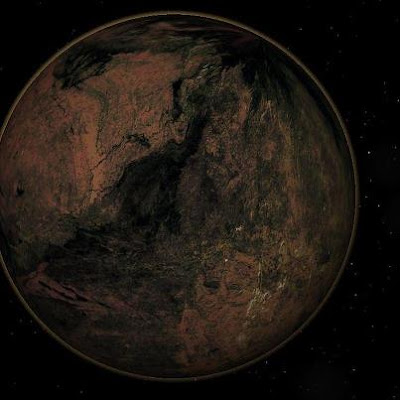The planet, called 55 Cancri e, was discovered last year and was initially assumed to have a similar chemical makeup to Earth.
However, the researchers were unable to infer the composition of the planet from the recent mass and radius measurements, by "compute all possible combinations of elements and compounds" that match the size. Using this technique, the researchers discovered that 55 Cancri e consists primarily of carbon in the form of Graphite and diamond, as well as iron, silicon carbide, and some silicates.
Such a planet is likely to have an iron or iron-rich core known as the terrestrial planets. Surrounding be Molten Silicon carbide and titanium carbide. On top, a layer of carbon in the form of Graphite, possibly with a kilometer-thick substratum of diamonds if there is enough pressure. During a volcanic eruption, possible diamond from the interior can produce up to the surface, resulting in the mountains of diamond and silicon carbides. The surface contains a fixed or liquid hydrocarbons (eg tar and methane) and carbon monoxide
55 Cancri e is different from the Earth in many ways, not least because over a third of the planet could be diamonds. The planet - orbit the sun in the constellation of Cancer - The radius twice that of Earth, a mass about eight times larger, and revolves around the sun its only 18 hours.
The surface of the planet is estimated at about 3,900 degrees Fahrenheit, and the intense heat accompanied by pressure over time likely caused carbon of the planet to the diamond. "This is our first glimpse of a rocky world with a fundamentally different chemistry from Earth," remarked lead tagapagpananaliksik Nikku Madhusudhan, and this decision could lead to a new way of looking at yet undiscovered planet.

No comments:
Post a Comment